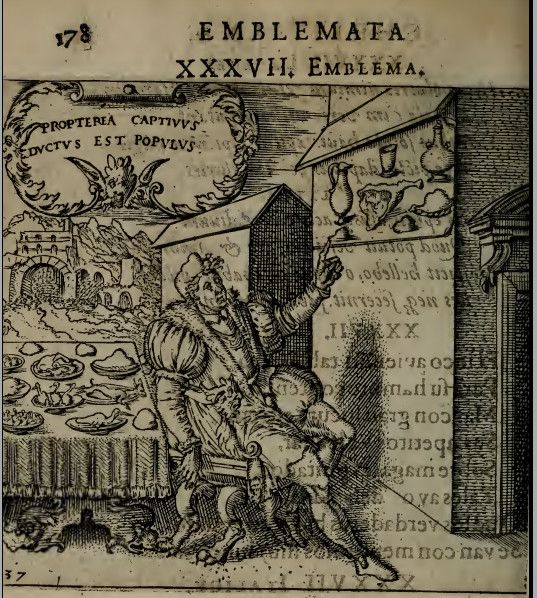
Propterea captivus ductus est populus.
That's why people are a guided prisoner.
Heu volucres nimium petulanti in pectore sensus,
Frivola cum veris utiliora putant.
Futilibus solida haut capitur sapientia nugis:
Nec pictis dapibus pellitur esuries.
Alas, too playful and fleeting are the senses in breast,
They are considered to be more useful frivola cum veris.
The firm wisdom isn't comprehended by frivolous chatterers:
And the hunger isn't quenched by exquisite meals.
HOW IS THIS CONNECTED WITH THE TITLE???
Elixis epulis, assisque accumbere, divum
Quod potuit vesci nectare et Ambrosia?
Prospicit elleboro caput insanabile: pictas
Res neque secernit fabulam ab historia.
Who, except god, could eat boiled and unalloyed meals,
Nectar and ambrosia?
Incurable head prepares the emetic for itself:
???
I'm so lost, guys! I'd be very grateful if you could help!


